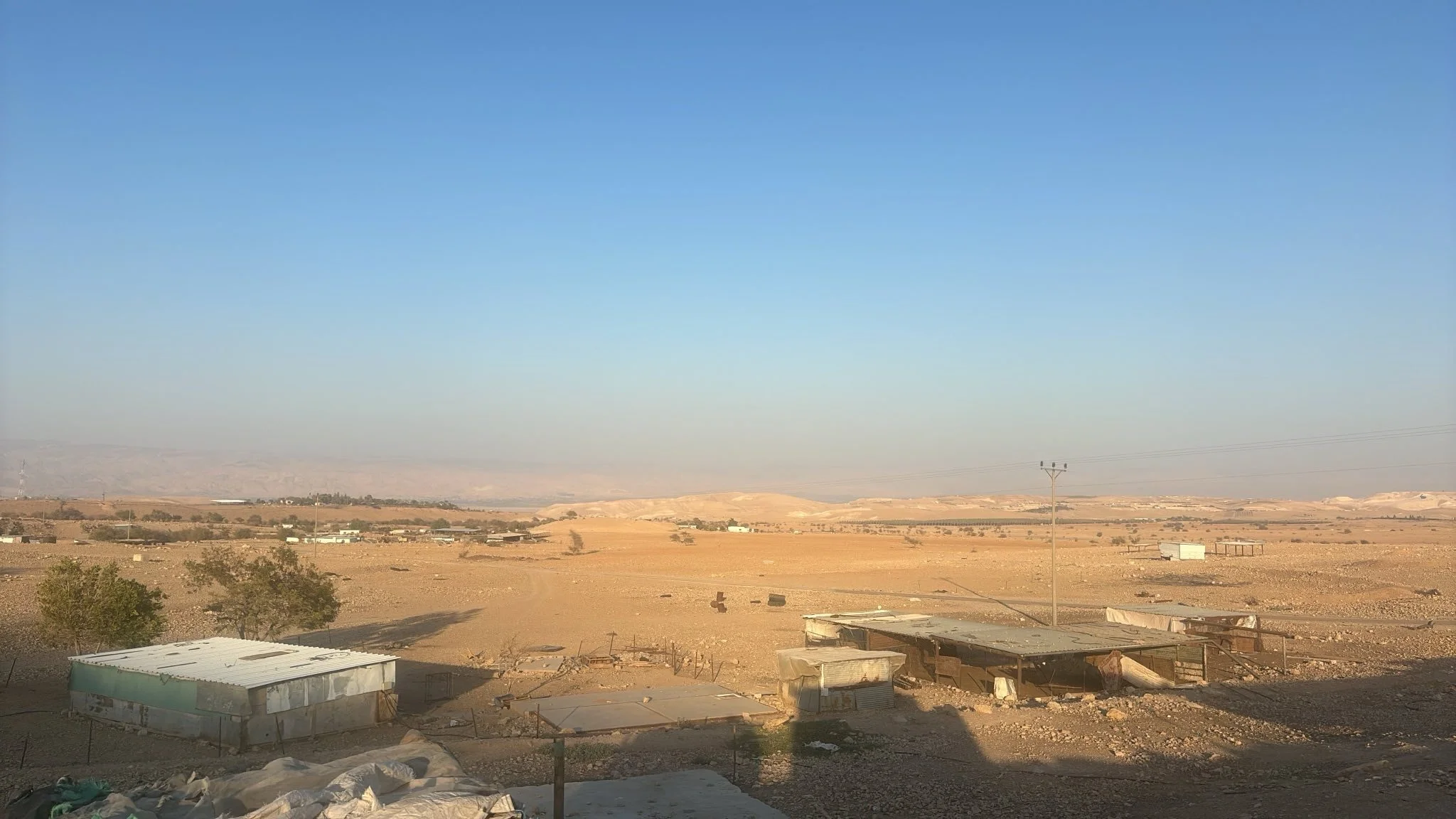Towards Solidarity: An Update From the UCPiP Team
Landscape of Ras al-Auja, Palestine
The name of the village Ras al-Auja means “the head of the spring.” It is where cool underground water once rose to meet the scorching earth of the desert, allowing life to bloom in the valley. At Ras al-Auja, the spring once flowed down the mountainside, nourishing the land below and sustaining dozens of Palestinian families. Today, many of the homes, barns, and community centers sit empty, and the spring runs dry.
Even without water, the land remains sacred, and under siege. Israeli settlers target the territories still owned by Palestinian families who have refused to flee. Faith runs strong here, and many Palestinians in the South Jordan Valley still believe the water will return. But they also fear they may be purged from their homes before it does.
The UCPiP pilot team arrived in Ras al-Auja following nearly ten days of training in Bethlehem and the greater occupied West Bank. Our first week in the Jordan Valley has been marked by soft pink desert sunrises and deep purple nights, divided by blistering days reaching 46°C (115°F). Through every hot day and every quiet night, our team has ventured into the desert to respond to near-constant settler attacks aimed at ethnically cleansing the last remaining Bedouin communities who continue to resist forced displacement.
On our third night, settlers attacked the village’s electrical station, cutting power for Palestinian families. That same night, they came to homes where activists and human rights defenders were sleeping. They severed our CCTV security cables. At sunrise, a settler and his herd of goats were standing just 20 meters from our front door.
On the 29th, settlers, this time backed by the Israeli Civil Administration and local police, launched another attack, targeting the land traditionally used by Palestinians to access the Ras al-Ein spring. They began digging a massive pit where they had already erected large ‘Star of David’ sculptures and painted nationalist slogans in the weeks before. Their aim: to create a swimming pool for Israelis and block Palestinians from reaching the spring. Through the rapid response of UCPiP personnel and our partners, we temporarily halted the settlers and helped prevent the complete destruction of the spring, for now.
As part of our training, we had the privilege to meet community activists resisting forced displacement in Masafer Yatta. Among them was Awdah Hathaleen. On Monday afternoon, Awdah was murdered by an Israeli settler while defending his community from state-backed violence. His loss reverberated deeply through our team and communities across the globe. One team member, recalling Awdah’s words to us, remembered him saying something like: “It is not enough to support Palestinian communities, you must be in true solidarity with them.”
Solidarity is hard. It is heavy. Each of us feels its weight. We’ve struggled with the impossibility of justice in the face of overwhelming brutality. And yet, we recognize that even small victories—like protecting the Ras al-Ein spring—are sacred. They are grains of sand in a growing desert of oppression. But they matter.
We carry Awdah’s spirit with us. His courage, and the hope of everyone who works for justice, walk with us, through every setback, every breakthrough, every quiet moment of presence.
Because in the Jordan Valley, we know this: the spring won’t stay dry forever. The water will return. And one day, so will the people.
In warmth and solidarity,
UCPiP Field Team

